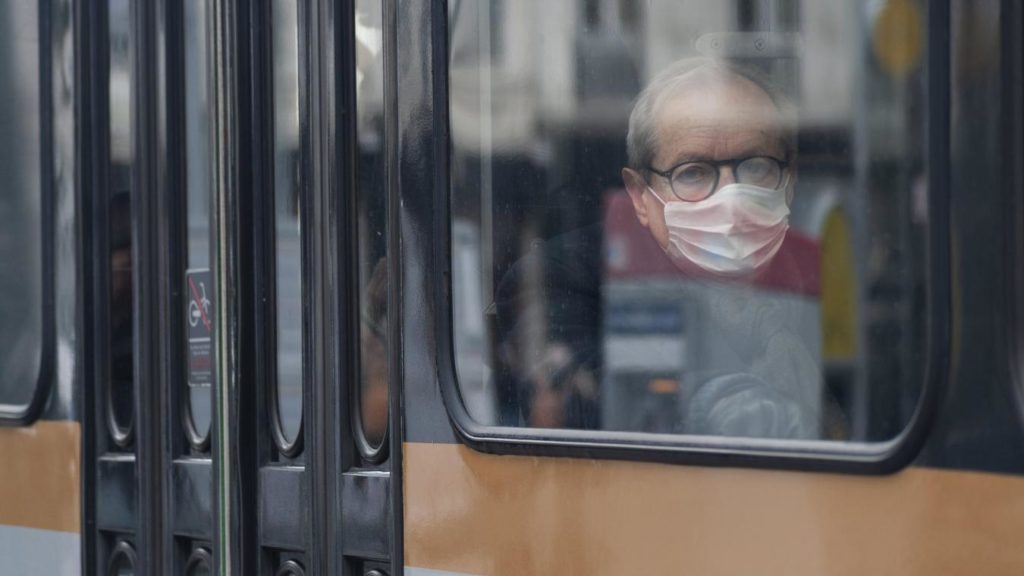Belgium will begin progressively easing out of the coronavirus lockdown from Monday, with a number of confinement measures relaxed as some sectors and daily activities begin to sputter back to life.
From construction work and transportation to outdoor activities and childcare, new measures have been introduced while others have been relaxed — here is an overview of the changes as Belgium inches towards deconfinement.
Back to work
Non-essential industries and sectors will be allowed to return to work from Monday provided that they are business-to-business companies.
Firms providing services like accounting, logistics or communication services to other companies are therefore allowed to resume activities as long as personal contacts are reduced as much as possible, VRT reports.
Telework "continues to be the norm" but strict social-distancing guidelines and hygiene recommendations should be observed.
Related News
- Coronavirus: Belgium reaches 50,267 confirmed cases
- Uber to require drivers and passengers wear a mask
Construction work can also resume from Monday, including projects in private live-in properties, Federal Work Minister Nathalie Muylle confirmed.
Works inside private residencies could be carried out if they were required or linked to an urgent sanitary or safety issue, such as a plumbing or electrical problem, the Crisis Centre said.
The federal public services for work and employment published sector-specific guidelines and safety recommendations aimed at companies as they bring staff back into the workplace.
Textile companies and shops are allowed to reopen from Monday as well after authorities added them to the list of essential businesses because of they can supply the material needed to make protective face masks, Prime Minister Sophie Wilmès said in a statement.
Facemasks
The use of facemasks or any mouth covering alternatives will be mandatory on public transportation as companies begin operating following regular schedules from Monday.
The obligation to wear a mouth cover will concern all commuters above the age of 12 both in the vehicles and on the station and platforms.
Regarding rail transport, the SCNB has said that trains will run with as many wagons as possible in order to ensure social distancing can be respected and that vehicles will be disinfected "at regular intervals," while cleaning will be "reinforced" in stations.
From Monday, rail companies Eurostar and Thalys have both said that staff will enforce the use of face masks among passengers.
Recreational and outdoor activities
Restrictions have been lifted on outdoor activities, with individual sports like fishing, kayaking or golfing once again allowed.
Non-individual sports which require no physical contact and which allow appropriate social-distancing, like tennis or golf, are also permitted from Monday.
The rules for non-essential trips have also been relaxed but follow a "common-sense" basis, with the Crisis Centre publishing guidelines to help residents understand what they can and cannot do.
Residents who are signed up in a sports club which is not in their place of residency are allowed to drive there but are advised to return home as soon as possible after.
Motorbike rides are also authorised again provided that they are done either alone or in the company of people living under the same roof or with a maximum of two friends, always the same ones, with social-distancing required for the latter.
Picnics, sunbathing and lounging in the grass or in park benches continue to be strictly forbidden, the Crisis Centre said, adding that pregnant women, people with disabilities or the elderly would be granted some degree of tolerance.
While "touristic activities or outdoor excursions are still not allowed," the centre said that using a vehicle to go practice a sports activity to an outdoor setting located at a "reasonable distance" was allowed.
Non-urgent medical consultations
Hospitals are again allowed to receive patients for non-urgent consultations on an appointment-only basis from Monday.
Since 14 March, a generalised state of alarm meant that hospitals were forced to cancel all interventions which were not of an urgent nature or vital for a patient's survival.
Child care
Nurseries will no longer accept to take in only the children of parents working in an essential sector, as a larger number of professionals return to work.
Children of single parents or of a couple in which at least one parent is returning to work can now put their children in a nursery.
A second phase of the lockdown phase-out is currently set to begin on 11 May, date in which all shops will be allowed to reopen, followed by a partial reopening of schools on 18 May.
Gabriela Galindo
The Brussels Times

